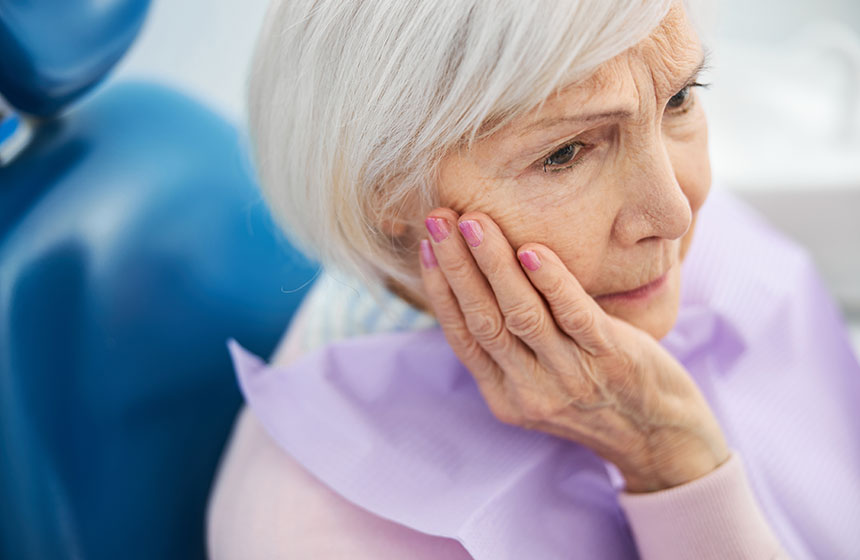Halitosis, generally known as bad breath, can be unpleasant and, in extreme situations, even make people anxious. It is understandable why store shelves are brimming with gum, mints, mouthwash, and other breath freshening items. But because they do not deal with the root of the issue, many of these products are merely band-aid fixes. Find out more about the causes and symptoms of bad breath as you age.
Bad Breath in Old Age
Among the factors contributing to foul breath are particular foods, age-related medical conditions, and behaviors. With continuous, good oral hygiene, you can often reduce foul breath. If straightforward self-care methods are ineffective, consult a dentist or doctor to make sure a more serious condition is not to blame for your bad breath.
Bad Breath Symptoms
Depending on the source or underlying cause, different people have different bad breath smells. While some people have little to no mouth odor and worry excessively about it, others have foul breath but are unaware of it. Ask a close friend or relative to corroborate your bad-breath suspicions because it can be challenging to judge how your own breath smells.
Causes of Bad Breath
- Food
Bacteria growth and bad odors can result from the breakdown of food particles in and around your teeth. Additionally, eating foods like onions, garlic, and spices might contribute to bad breath. Following digestion, these meals enter your bloodstream, travel to your lungs, and have an impact on your breathing.
- Tobacco Products
Smoking leaves a bad aftertaste in the mouth. Gum disease, another cause of bad breath, is more prevalent in smokers and oral tobacco users.
- Bad Oral Hygiene
Bad breath is brought on by food particles that stay in your mouth if you do not brush and floss every day. Your teeth develop a sticky, white film of bacteria called plaque. Plaque can cause irritation on your gums and in turn create plaque-filled pockets between your teeth and gums if it is not removed by brushing (periodontitis). Additionally, odor-producing bacteria might be caught on your tongue. Dentures that are not cleaned frequently or do not fit well might collect food particles and odor-causing bacteria.
- Medications
Some medications for the elderly might cause dry mouth, which can result in bad breath. Others can be metabolized by the body to produce compounds that are then exhaled.
- Mouth Infections
Bad breath may arise from surgical wounds following oral surgery, such as tooth extraction, as well as from gum disease, tooth decay, or sores in the mouth.
- Dry Mouth
Saliva aids in mouth cleaning by eliminating debris that contributes to foul odors. Because less saliva is produced when a person has xerostomia, they may have bad breath.
When to Consult a Professional
Review your oral hygiene routines if you experience bad breath. Consider adopting lifestyle adjustments including drinking plenty of water, using dental floss, and brushing your teeth and tongue after meals.
Consult your dentist if your bad breath still exists after making these changes. Your dentist could suggest that you see a doctor to identify the source of the odor if they think that your foul breath is the result of a more serious condition.







